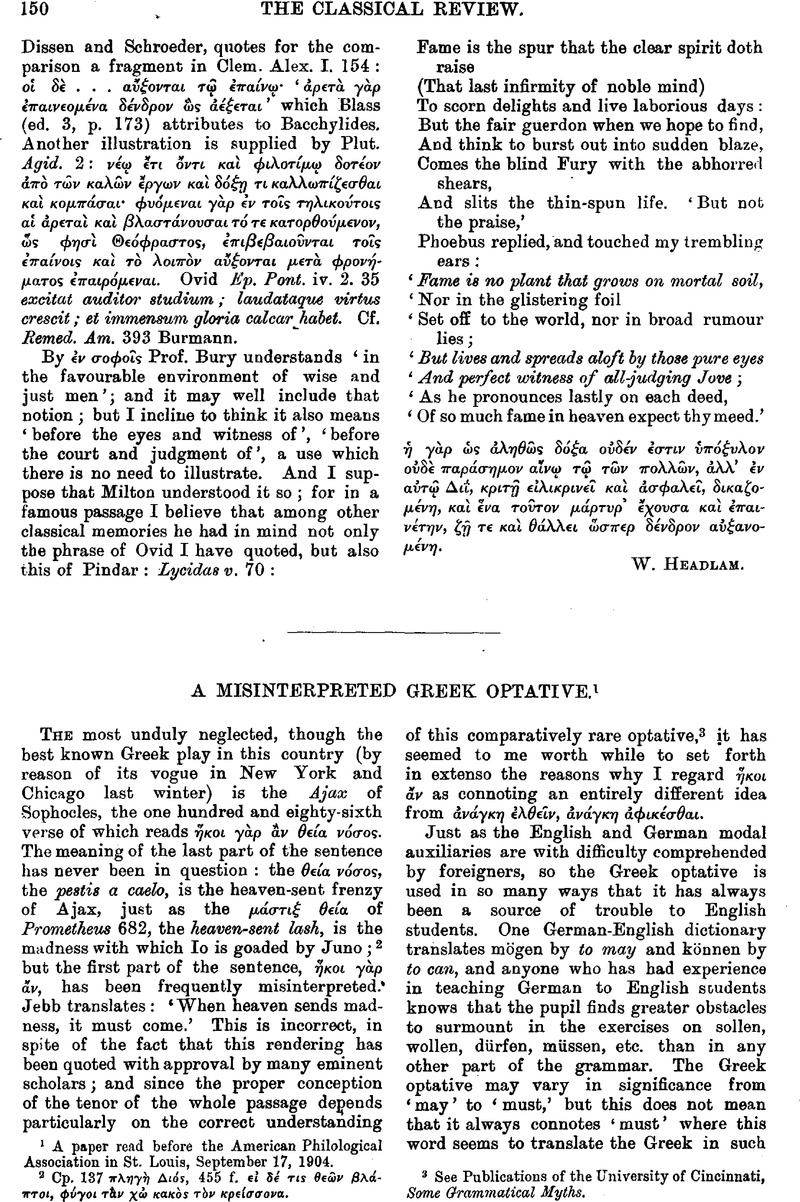No CrossRef data available.
Article contents
A Misinterpreted Greek Optative.1
Published online by Cambridge University Press: 27 October 2009
Abstract

- Type
- Review Article
- Information
- Copyright
- Copyright © The Classical Association 1905
References
page 150 note 2 Cp. 137 πληγ⋯ ∆ιόs, 455 f. εἰ δ⋯ τιs θε***ν βλ⋯πτoι, φύγoι τἄν χὠ κακ⋯s τ⋯ν κρε⋯σσoνα.
page 150 note 3 See Publications of the University of Cincinnati, Some Grammatical Myths.
page 151 note 1 Cp. Ф 83 μ⋯λλω πoν ⋯π⋯χθεσθαι ∆ι⋯ παΥρᾧ, Υ 451 ᾧ μ⋯λλειs εὖχεσθαι, Ω 46 μ⋯λλει μ⋯ν πoύ τιs κα⋯ Ф***λτερoν ἄλλoν ⋯λ⋯σσαι.
page 152 note 1 Sophocles 0. T. 839 ἄν ⋯κπεФενγo⋯ην.
page 152 note 2 It is worthy of note that Plato, when he has occasion to employ the same verb in the same mood and tense, makes use of the periphrastic form ἄν ⋯μπεπτωκὼs ε⋯η (Rep. 569c). Cp. Pseudo-Demosthenes 59. 11 περιπεπτωκὼs ἦν.
page 152 note 3 Mekler (Teubner) reads the indicative, Jebb the subjunctive.
page 153 note 1 Dionysius of Halicarnassus, in his treatise De Compositione Verborum, speaks of the arch-offender against style, Hegesias, as being afflicted with θεoβλ⋯βεια ηα⋯ διαФθoρ⋯ Фρεν***ν ὢστε εἰδότα τoὺs κρε⋯ττovs ἔπειτα τoὺs χε⋯ρoναs, (‘so infatuated and fatally misguided that he chose the worse although he knew the better’).




